Розробка уроку на тему для 8 класу " HEALTH HABITS"
Цікавий урок для всіх учасників освітнього процесу, адже формування здорового способу життя у підлітків - нагальний виклик сьогодення
Topic: Health Habits
Objectives: to introduce and practise the topic;
To improve students’ vocabulary skills and to broaden student’s vocabulary;
To develop students’ communicative competence, listening and reading skills;
To provide a stable and welcoming atmosphere in the class;
To inspire students to work in groups and pairs;
To encourage understanding and tolerance to others;
To form healthy lifestyle skills.
Outcomes: by the end of the lesson students will be able:
To use the words of the topic in oral speech;
To listen to the texts and understand information about health habits;
To talk about your diets and express personal attitude to the health habits;
To do a class survey “Healthy Eaters”
Equipment: Student’s Book, Workbook, audio tracks, HO
Procedure
І. Warm – up
- Do the quiz “ Food and Health” and find out how healthy you are ( exercise 10 p.51)
- Pairwork.
- Do you think you have a healthy life style?
- Is your diet healthy?
- Do you go in for sport?
- How do you spend your free time?
- Is it possible to have a healthy life style in modern world?
- Why do many people try to have a healthy life style?
II. Reading
- Pre – reading activity
- Do exercise 1 p.33 (discussion)
- Study the new vocabulary p.33 and match the pairs. (HO)
|
A flavour |
шипучий |
|
To depend on |
ризикувати |
|
To overeat |
Залежати від |
|
fizzy |
Займати час |
|
To be at risk |
переїдати |
|
To take one’s time |
смак |
- While – reading activity
- Read the text. (HO)
What health habits is it about? Which of them are good and which are bad health habits?
Being overweight and physical inactivity are known from ancient times. They are joined by the modern bad habits: smoking and drinking too much alcohol, and the surprising “dander” of sleeping too much or too little, watching TV a lot, eating between meals and skipping meals. These poor health habits could lead to different diseases. Of course sleeping too much or too little, snaking and skipping meals are not quite as dangerous as smoking, overweight and drinking, but they are signs of dangerously chaotic lifestyles.
Regularity in life promotes your health. Sleeping or eight hours, getting up early, having a healthy diet, eating a variety of foods, taking regular exercise is really a good way to live.
- Post – reading activity
- Group work.
Complete the chart below and say what are bad health habits and what are good health habits. What habits would you choose? Why? (HO)
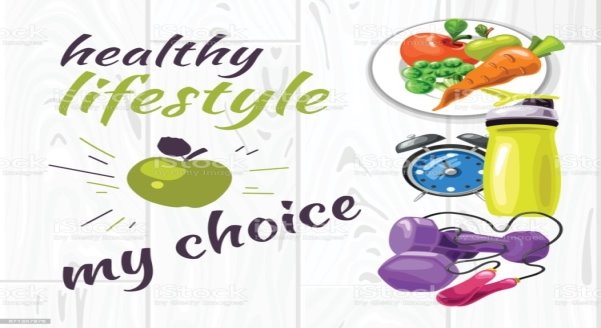
|
Bad health habits |
Good health habits |
|
|
|
- Pairwork.
Complete the following sentences with the words from the text above. (HO)
- You shouldn’t … meals. It is not a good way to lose weight.
- The children have mid – morning … at about 11 o’clock – usually fruit and a drink.
- Regular exercise is a good … for kids to develop.
- Many of teens are … because they eat too much junk food.
- Overeating … to being overweight.
- It is important to have a balanced, healthy … .
- Regular exercise is part of a healthy … .
- A balanced diet … good health and normal development.
- She’s always complaining that the meals here don’t have enough …
Key: 1 skip, 2 snacks, 3 habit, 4 overweight, 5 leads, 6 diet, 7 lifestyle, 8 promotes, 9 variety
III. Speaking
- Group work. (Questionnaire “How healthy is your diet?”)
Do exercise 3 on p. 34
Choose the sentences that are true for you in this questionnaire. If you have more happy faces than sad faces, you eat a healthy diet.
Present your results to your classmates.
- Role - play.
Read the sentences below and decide if you agree or disagree. Discuss with your partner. Think of some examples to illustrate your opinion. (HO)
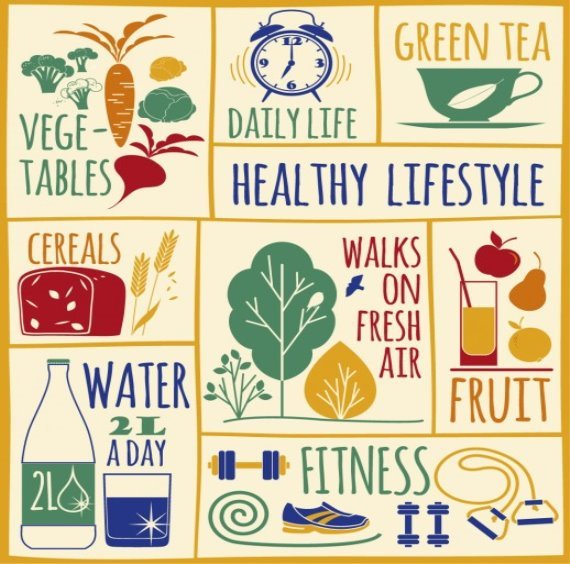
- Teenagers eat too little fruit and vegetables.
- Parents are to blame when children eat too much fast food.
Possible answers:
- I disagree completely …
- I mostly disagree …
- I’ m not sure …
- I mostly agree …
- I agree completely …
- It means that …
- Besides I …
- I think teenagers should
- As for me, I …, because …
- Being healthy for me is …
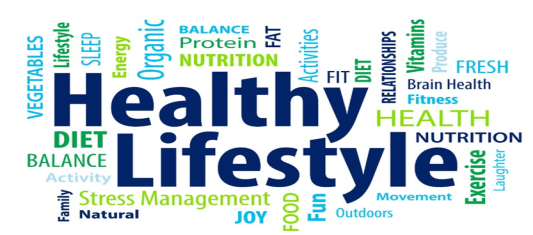
IV. Listening
- Pre – listening activity
Pairwork.
Do exercise 4 (a) on p. 35 (look at the following statements, discuss them with your partner and decide if they are true or false.)
- While – listening activity
Do exercise 4 (b) on p. 35 (listen and check if you were right.)
- Post – listening activity
Do exercise 5 on p. 35 (listen again and choose a, d or c)
Do exercise 6 on p. 36 (choose the right meaning for the words in bold)
V. Writing
- Do exercise 2 on p. 21 into your workbooks.
Your mum or dad wants to lose some weight. Give her / him some advice. Use different expressions. Here are some ideas to help you.
|
Eat fewer sweets, start exercising, stop eating after 6 p. m., drive everywhere, walk more, watch TV so much
|
- Do exercise 4 on p. 23 into your workbooks.
Complete each sentence by writing in the missing pair of words.
|
Drink + food, three + snacks, proper + memorise, balance + consume, contain + salt, chew + enjoy, larger + normal
|
- Children who eat … breakfast learn and … things better. They are also more interested and pay more attention in class.
- It’s best to have …main meals in a day and at least two smaller meals or … between the main meals. That way you will have enough energy all day.
- How much water we have to … actually depends on all athe … that we eat in a day.
- Portions are getting … . So keep your portions … sizes and don’t overeat.
- It’s important to get the right … between the amount of calories we … and the amount of calories our body uses.
- We shouldn’t put too much sugar and salt in our food because a lot of foods already … sugar or … .
- You shouldn’t eat in a hurry. It’s very important that you … your food slowly and … it.
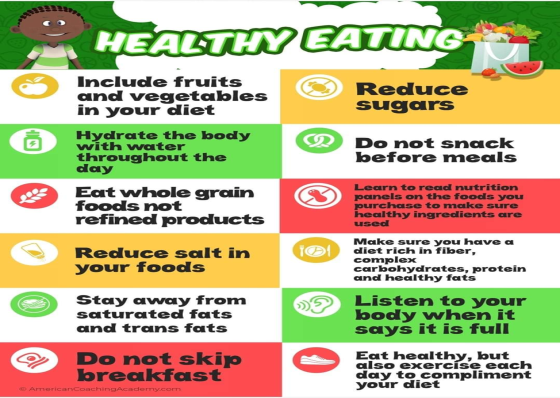
- Project Work “Healthy Eaters” (exercise 7 on p. 36 SB)
Do a class survey. Find out if you and your classmates are healthy eaters. Follow the plan below.
Step 1. Prepare a questionnaire. You are going to find out what pupils in your class usually eat during the day.
- What kind of food do you have for breakfast?
- When do you have your breakfast?
- What do you have for lunch?
Step 2. Interview as many people as possible.
Step 3. Present your results on a poster.
|
Questionnaire
|
Classmates |
||||
|
Daria |
Olha |
Maksym |
Illia |
Roman |
|
|
What kind of food do you have for breakfast? |
Tea, sandwich |
Porridge, milk |
Pizza, orange juice |
Pasta, fried meat, salad |
Cocoa, roll |
|
When do you have your breakfast? |
|
|
|
|
|
|
What do you have for lunch? |
|
|
|
|
|
Conclusion:
VI. Summary
Brainstorm “What has to be done to make teenagers healthier?”
|
Grown – ups Teenagers Teachers Parents
|
Should
|
Ban Do Give up Invent Limit Tell Join Try
|
Eating junk food. A health or fitness club. Adverts about things like chips. Eating junk food. Regular exercises. Healthy fast food places. TV, computer and video game time. To watch what you eat. A variety of activities to find what you enjoy. The junk food with less calories and fat. |
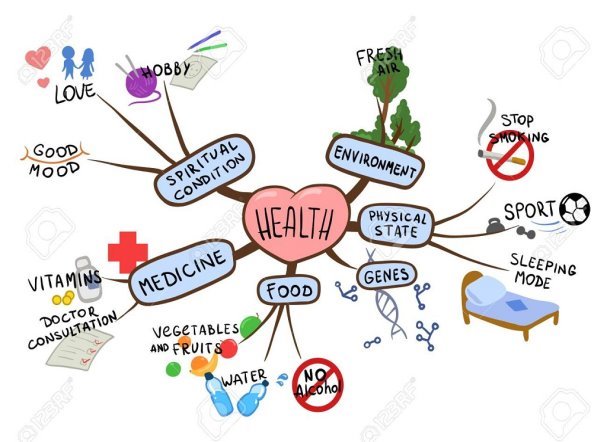
VII. Homework
Write a letter to your pen – friend about food and health. Think about things we eat that are bad for us. Decide what problems they cause for the human body. Also think about what food is good for us and why.


про публікацію авторської розробки
Додати розробку
